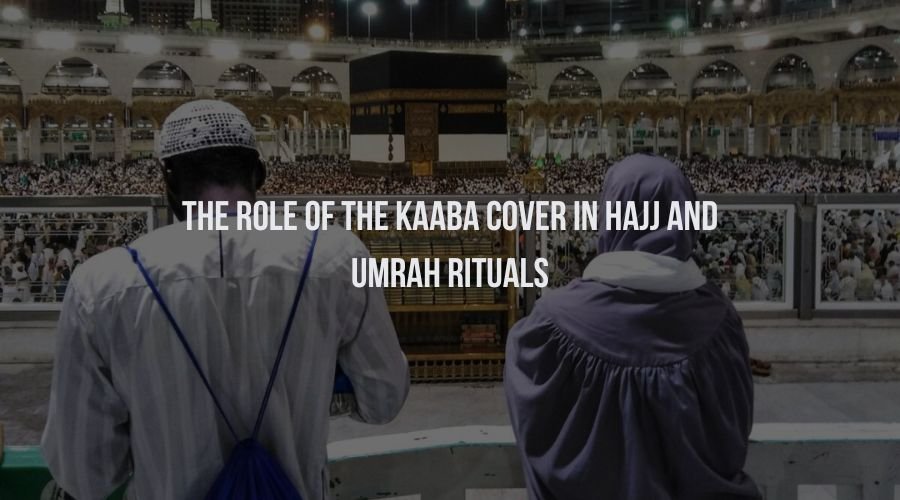The Kaaba, a cubical structure in Mecca, stands as the holiest site in Islam. Millions of Muslims undertake the pilgrimage of Hajj each year, circling this sacred building in a ritual known as Tawaf. But the Kaaba isn’t bare – it’s adorned with a magnificent cloth cover called the Kiswa. This rich tapestry holds immense cultural significance that transcends borders, uniting Muslims across the globe. Let’s delve into the fascinating story of the Kaaba Kiswa and explore its unique meaning in different Muslim countries.
Kaaba Cover: A Symbol of Unity and Respect
The Kaaba Kiswa is more than just a Islamic decor cloth. It signifies respect for the Kaaba’s sanctity and serves as a powerful symbol of Muslim unity. The sight of the draped Kaaba unites Muslims in prayer, reminding them of the foundational act of Abraham (Ibrahim) and Ishmael (Ismail) raising the structure as a house of worship for one God. The annual replacement ceremony, a meticulous process involving skilled artisans in Saudi Arabia, is watched with reverence by Muslims worldwide.
Kaaba Kiswa's Significance Across Cultures
While the core meaning of the Kaaba Kiswa remains consistent, its cultural significance takes on subtle variations across Muslim-majority countries. Here’s a glimpse into how different regions view this revered cloth:
The Arab World
In Saudi Arabia, the custodians of the holy sites, the Kaaba cover holds immense importance. Its creation and replacement are seen as acts of great religious service. Owning a piece of the old Kaaba Kiswa is considered a privilege, a way to connect with the holiest site in Islam.
Africa
Across the vast African continent, the Kaaba Kiswa inspires a deep sense of connection to Mecca. Many African Muslims view the changing of the Kaaba cover as a time for prayer and reflection. Seeing a piece of the old Kaaba cover displayed in a local mosque can be a moving experience, fostering a sense of closeness to the heart of Islam.
South Asia
In countries like India, Pakistan, and Bangladesh, the Kaaba Kiswa holds a special place in the hearts of Muslims. The annual Hajj pilgrimage is a major event, and the Kiswa’s replacement coincides with increased religious fervor. Seeing a piece of the old Kaaba Kiswa displayed in a local mosque can be a source of immense pride and a powerful reminder of the global Muslim community.
Southeast Asia
In Indonesia, Malaysia, and Brunei, the Kaaba cover is a symbol of Islamic unity. Here, Islamic art and calligraphy are deeply ingrained in the cultural fabric. The intricate embroidery on the Kiswa resonates with the artistic traditions of these regions, further strengthening the connection to the holy site.
Europe and North America
For Muslim communities in these regions, the Kaaba Kiswa serves as a powerful link to their heritage. Seeing pictures or videos of the Kiswa being draped on the Kaaba can evoke a sense of longing and connection to the Islamic world. Owning a piece of the old Kaaba cover, even a fragment, can be a cherished family heirloom, passed down through generations.
Beyond Borders: A Shared Experience
Despite these regional variations, the core meaning of the Kaaba Kiswa remains consistent – a symbol of respect, unity, and devotion. Here are some ways the Kiswa transcends borders and creates a shared experience for Muslims worldwide:
Hajj Preparations
The arrival of the new Kiswa in Mecca just before Hajj signifies the commencement of the pilgrimage season. Muslims across the globe prepare for their spiritual journey with renewed fervor.
Islamic Art and Culture
The Kaaba cover inspires various forms of Islamic art. Calligraphic representations of the embroidered verses adorn mosques and Islamic decor pieces. Replicas of the Kaaba Kiswa are woven as Islamic decor pieces, fostering a connection to the holy site.
Charity and Community
The discarded pieces of the old Kaaba Kiswa are cut into small squares and distributed to dignitaries and pilgrims. These cherished keepsakes serve as a reminder of their pilgrimage or a source of spiritual comfort.
A Story Woven in Faith
The cultural significance of the Kaaba cover is a testament to the unifying power of Islam. The Kiswa transcends borders, languages, and ethnicities, binding Muslims together in a shared narrative of faith and devotion. It’s a story woven in respect for tradition, artistic expression, and the unwavering belief in the sanctity of the holiest site in Islam.
If you’re looking for a unique way to connect with the symbolism of the Kaaba Kiswa, consider exploring the Kiswah Islamic Store. This store offers Islamic art, Muslim home decor and Islamic decor items inspired by the Kiswa’s design, allowing you to bring a piece of this powerful symbol into your own home.




